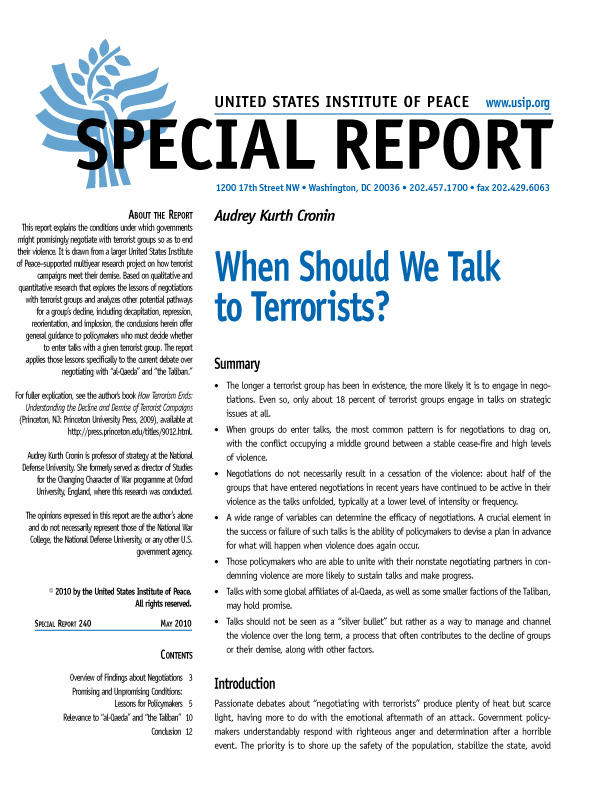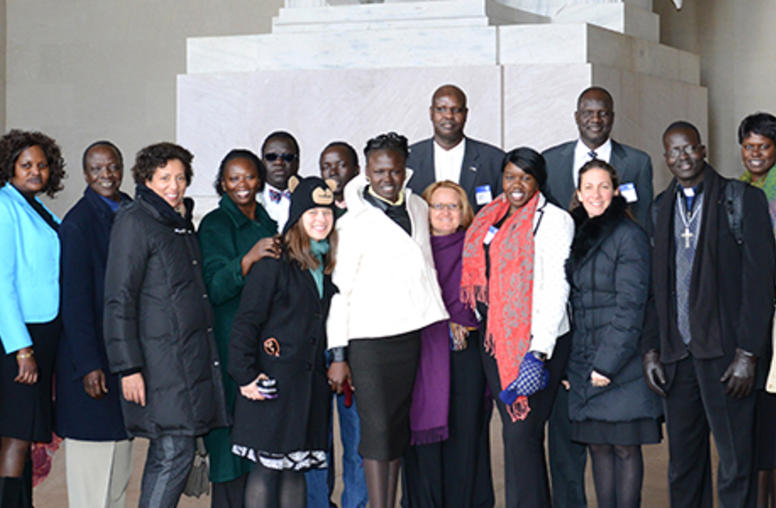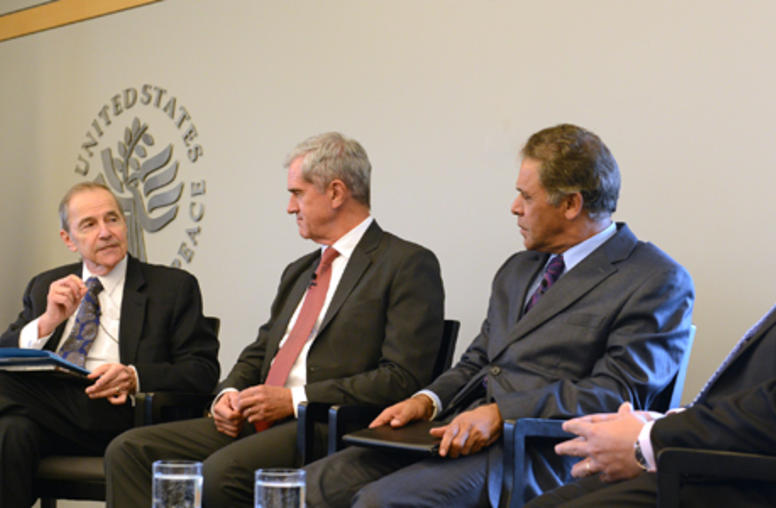When Should We Talk to Terrorists?

Summary
- The longer a terrorist group has been in existence, the more likely it is to engage in negotiations. Even so, only about 18 percent of terrorist groups engage in talks on strategic issues at all.
- When groups do enter talks, the most common pattern is for negotiations to drag on, with the conflict occupying a middle ground between a stable cease-fire and high levels of violence.
- Negotiations do not necessarily result in a cessation of the violence: about half of the groups that have entered negotiations in recent years have continued to be active in their violence as the talks unfolded, typically at a lower level of intensity or frequency.
- A wide range of variables can determine the efficacy of negotiations. A crucial element in the success or failure of such talks is the ability of policymakers to devise a plan in advance for what will happen when violence does again occur.
- Those policymakers who are able to unite with their nonstate negotiating partners in condemning violence are more likely to sustain talks and make progress.
- Talks with some global affiliates of al-Qaeda, as well as some smaller factions of the Taliban, may hold promise.
- Talks should not be seen as a "silver bullet" but rather as a way to manage and channel the violence over the long term , a process that often contributes to the decline of groups or their demise, along with other factors.
About the Report
This report explains the conditions under which governments might promisingly negotiate with terrorist groups so as to end their violence. It is drawn from a larger United States Institute of Peace-supported multiyear research project on how terrorist campaigns meet their demise. Based on qualitative and quantitative research that explores the lessons of negotiations with terrorist groups and analyzes other potential pathways for a group's decline, including decapitation, repression, reorientation, and implosion, the conclusions herein offer general guidance to policymakers who must decide whether to enter talks with a given terrorist group. The report applies those lessons specifically to the current debate over negotiating with "al-Qaeda" and "the Taliban."
For fuller explication, see the author's book How Terrorism Ends: Understanding the Decline and Demise of Terrorist Campaigns (Princeton, NJ: Princeton University Press, 2009), available at http://press.princeton.edu/titles/9012.html.
Audrey Kurth Cronin is professor of strategy at the National Defense University. She formerly served as director of Studies for the Changing Character of War programme at Oxford University, England, where this research was conducted.
The opinions expressed in this report are the author's alone and do not necessarily represent those of the National War College, the National Defense University, or any other U.S. government agency.



